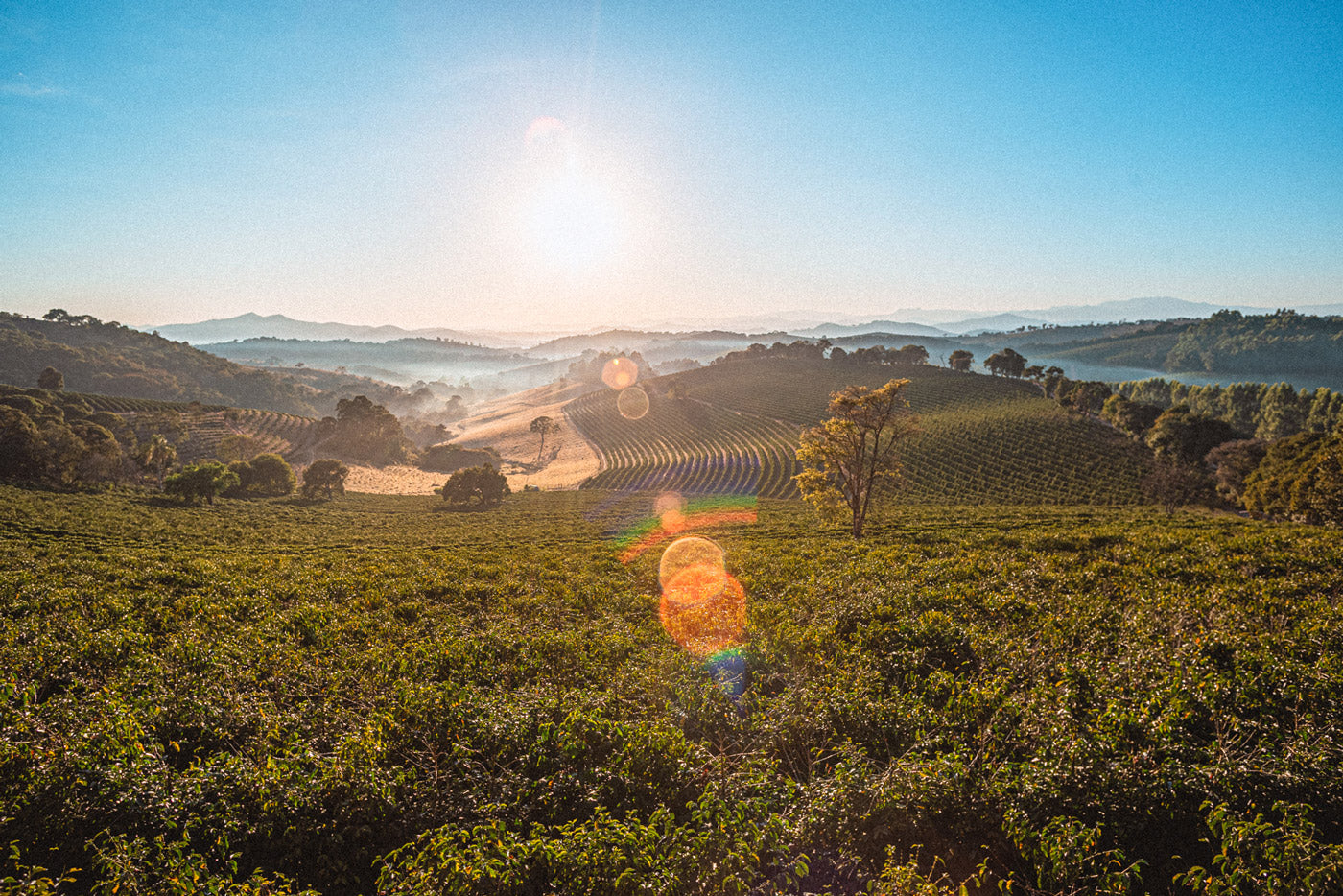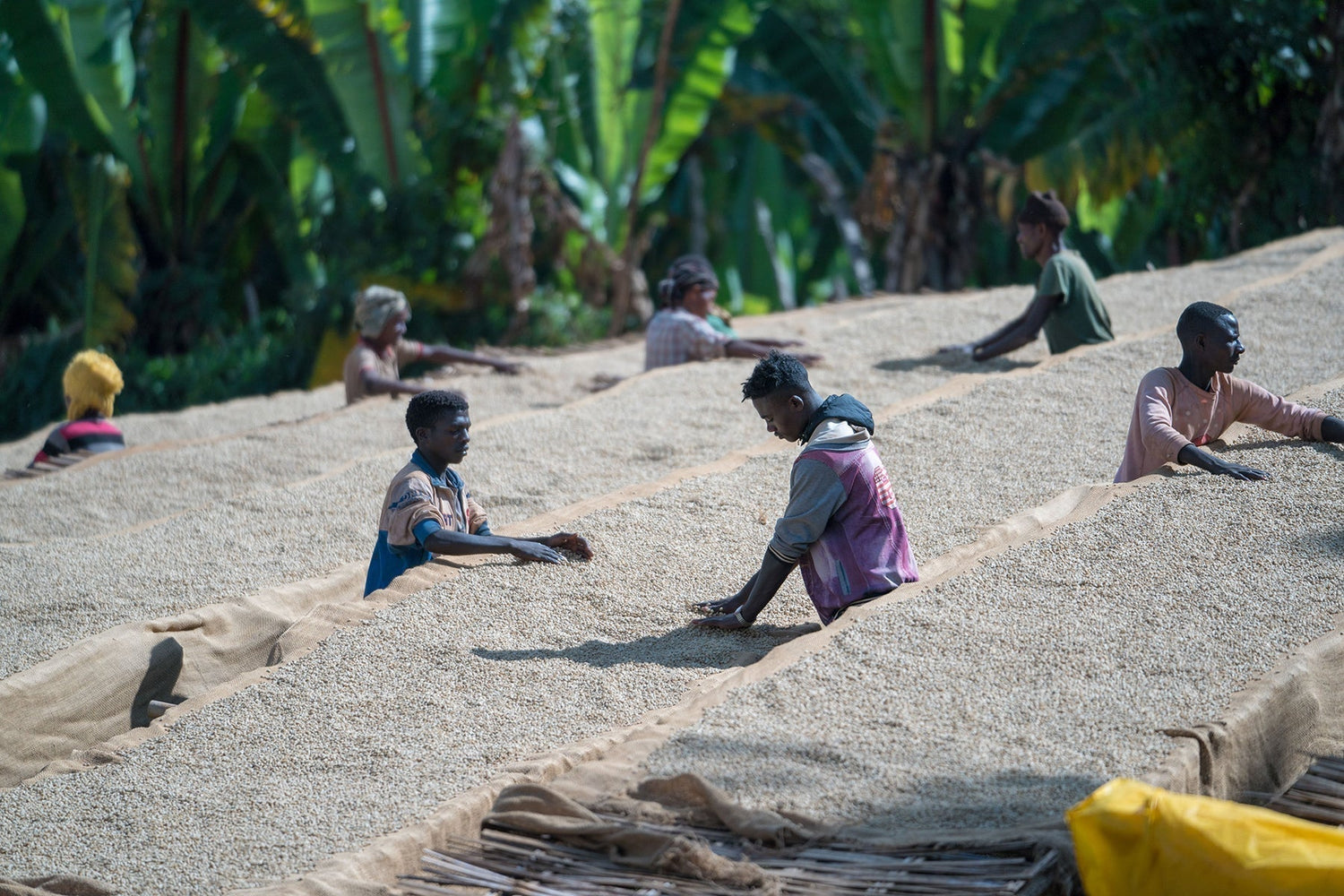The most important thing first! Organic coffee is very much about certification . In this blog article we will explain exactly what this means and what obstacles there can be in this certification process. Elias Fischbacher from the Wildkaffee Rösterei wishes you lots of fun discovering.
Organic coffee - Overview of organic labels
As already mentioned at the beginning, organic coffee undergoes a very complex certification process . But how many organic seals are there? It is actually difficult to say how many organic seals there are, because they vary according to regional organic seals , state organic seals, European organic seals, as well as seals such as the Demeter certification, as well as many other association seals that certify the products according to their own standards. In Germany alone, there are over 100 organic seals.
Keeping track of so many certifications is really difficult, because each seal requires different standards. What is at least the same for all of them is that at least 95% of the ingredients must be organic . This is a value of the EU organic seal, which has been the standard in Europe since July 2010. With organic coffee, this is of course quite easy, because the ingredient can only consist of organic coffee.

What is the significance of organic certification for coffee?
Let's move on to the certification of organic coffee! In this process , the entire production process is examined in great detail by a control association such as Demeter. First, the farm that grows the coffee is inspected and certified. The farmers are then inspected annually. Interviews are conducted with farmers and employees, green coffee samples are examined, and the entire cultivation process is inspected. This whole process costs the producer a considerable amount of money , which is why organic coffee can usually only be certified by established cooperatives.
The advantage for the cooperatives
What advantage does it have if a farmer or cooperative can call their coffee organic coffee? If the certification goes according to plan, the green coffee produced can be sold and marketed as organic coffee. This means that the farmer can add a premium of just under €0.60 to his coffee. In short, this means that in the long run he earns more money for the work he does and is paid noticeably better.
However, the buyer, in this case the roasters, can still decide whether they want to buy the coffee with or without the seal . This means that the buyer essentially buys the seal and can then use it in sales and marketing. The roasters must therefore decide whether the term organic coffee offers them added value.

Do roasters also have to be certified?
YES! Like the farmers, the roasters must also undergo a certification process in order to be allowed to sell the coffee as organic. The entire roasting process, filling and packaging, as well as storage are examined. Only if all of these characteristics meet the requirements can the coffee be sold as organic coffee or with the corresponding seal.
The rest of the process is also examined annually to ensure that the quality remains consistent and at the required level. And this certification also costs a lot of money. However, the roaster is then able to sell the organic coffee at a slightly higher price because the seal can then be printed on the packaging and advertised.

Advantages disadvantages
Advantages
We have already explained the biggest advantage of organic coffee for farmers. They can sell the coffee as organic coffee and thus charge a higher price for their work by selling the seal. Furthermore, the importance of organic coffee in the countries of origin is promoted. This also means that employees are no longer exposed to toxins and health risks. This not only protects people, but also biodiversity and the natural world in the countries of origin.
Disadvantages
Of course, there are also disadvantages. As already mentioned, certification as organic coffee is a very expensive matter , which for the most part only established cooperatives can afford. Smaller farmers, such as those in Ethiopia or Rwanda, cannot afford such a sum at all, even though their coffee could also be organic. The variety of seals is also a major problem for producers. For example, the EU organic seal is not relevant for green coffee buyers from non-EU countries, which would mean that non-certified coffee would be bought instead of organic coffee. Certification costs a lot of money every year and represents a major risk for farmers in the countries of origin.

Organic coffee from Farmers Voice
Long-time wild coffee fans may already know. We also have a product line with certified coffee, or rather Demeter certified coffee . This product line is called Farmers Voice. First and foremost, it is about fairly purchased, Demeter certified coffee that is gently roasted and hand-picked. The focus here is of course on the quality of the organic coffee, as well as the perfect roasting. For this reason, we only produce on demand and guarantee freshly roasted coffee and do not offer stock items.
The Demeter certified coffees are available in two varieties : Farmers Voice coffee and Farmers Voice espresso , which is made according to organic standards DE-ÖKO-001-NON EU agriculture.
These organic coffees are of course available in our online shop and in selected supermarkets. Our aim is for customers to be able to buy high-quality coffee in the supermarket, as there are some organic and fair trade certified products, but there is a gap in quality. This is also a major disadvantage of organic coffee, as the quality and ultimately the decisive taste are not checked. We want to close this gap in terms of green coffee quality and roasting processes.
Organic coffee from the Wildkaffee Roastery?
Farmers Voice coffees are our only certified organic coffees, but we take these very important controls of the farms and the coffee quality into our own hands . Our two roasters, Hardi and Stalti, undertake regular coffee trips to constantly monitor the conditions and working methods on site. This way we can guarantee that no toxic pesticides or fertilizers are used.
In addition to quality, fair payment for farmers is also a priority for us! We source our coffee directly from farmers we know personally . The close friendships and the constantly growing network are a great help to us.
Although not all of our coffees are certified as organic, they are certainly of the best quality and are traded fairly and directly.
Conclusion!
Organic coffee and the background of the certification process is a very exciting topic and it takes a certain amount of background knowledge to understand what exactly the definition of organic coffee means. The fact is that organic coffee is not a better product per se . Certification costs a lot of money, which smaller farmers or newly founded cooperatives in particular cannot afford. We continuously monitor the conditions directly at the coffee plantations and thus guarantee the best coffee quality from the plantation to the roaster. Our Farmers Voice line is Demeter certified and available both in the online shop and in selected supermarkets. #staywild


